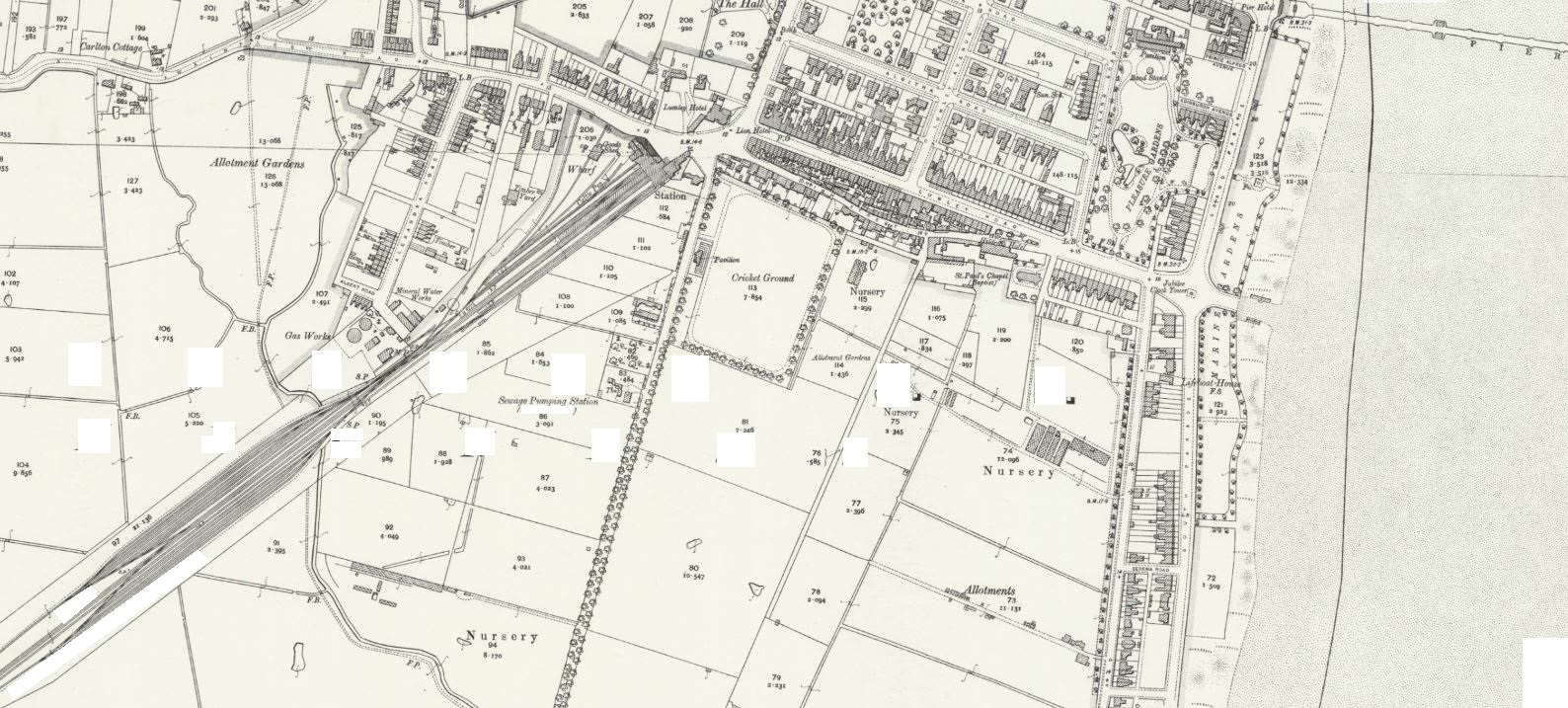
To subscribe to the email, please send a blank email to: raildate+subscribe@groups.io
Raildate is a collaboration between the editor and a number of contributors. Please think about supplying links that you spot. The contact email address is: raildate.co.uk@gmail.com
There are sections on:
East
East Midlands
London
Midlands
North East
North West
Scotland
South
South East
Wales
Yorkshire
National
Austria
Canada
Hungary
Ukraine
Air
Bus
Marine
Thank you to this week's contributors.

This small town is still blessed with an operational railway terminus. Where is it? We recently had "Swanage" as the answer to the same question - but it's a different map requiring a different answer.

Another terminus this week, this time with a distinctive station canopy. Where is it?
Answer: Wemyss Bay. Congratulations are due to the following for their correct answers: Colin Penfold, Dave Goodyear, Ian Lowe, Richard Whitbread, Andy Foster, Paul Hopper, John Lacy, Simon Wass, Brian Billing, Geaoffrey Blyth, Phil Deaves, Andrew Treves, Ian Bromley, John Gilby, John Musselwhite, Bernard Gudgin, Peter Skelton, Peter Tisdale.
Image credit: Roger Hateley RCTS Collection
Wemyss Bay is one of several pierheads on the Clyde coast where people could transfer to ships for the islands, including Bute (Rothesay) and Great Cumbrae (Millport), and hard-to-reach Tighnabruaich on the mainland. Although well located, it was competing with Gourock, Largs, and Ardrossen for cruise traffic and never became dominant. The station canopy was added in 1903, the line electrified in 1967, but the cruises have ceased; only the hourly Bute ferry continues.
Ships built on the Clyde used the "Skelmorlie Measured Mile" (a nautical mile) in Wemyss Bay as part of their proving. Customers could - and did - void contracts if performance was below the specified standard, because proven speed was a crucial marketing point for liners. Any failed ships were sold off by the shipyard to the highest bidder.
We welcome links to publicly available online news items and videos from anywhere in the world. Despite its name, Raildate covers all transport modes, including also bus, tram, air, and marine.
Raildate may be freely distributed without permission as long as no changes whatsoever are made to the original document distributed by the Editor.
The main Raildate website https://raildate.co.uk includes a history of Raildate by the founding editor Howard Sprenger and archived editions from 1996 to the present.
Facebook members are encouraged to join the Raildate group.
© Matthew Shaw 2024